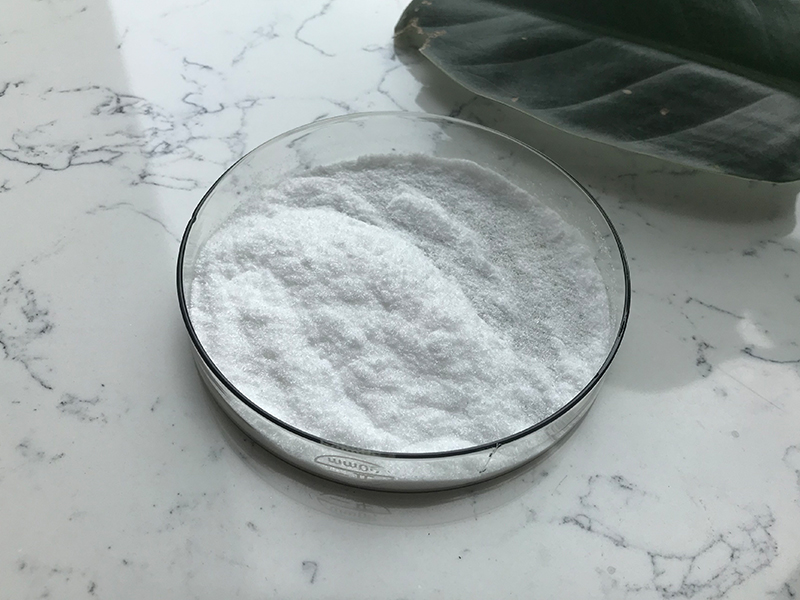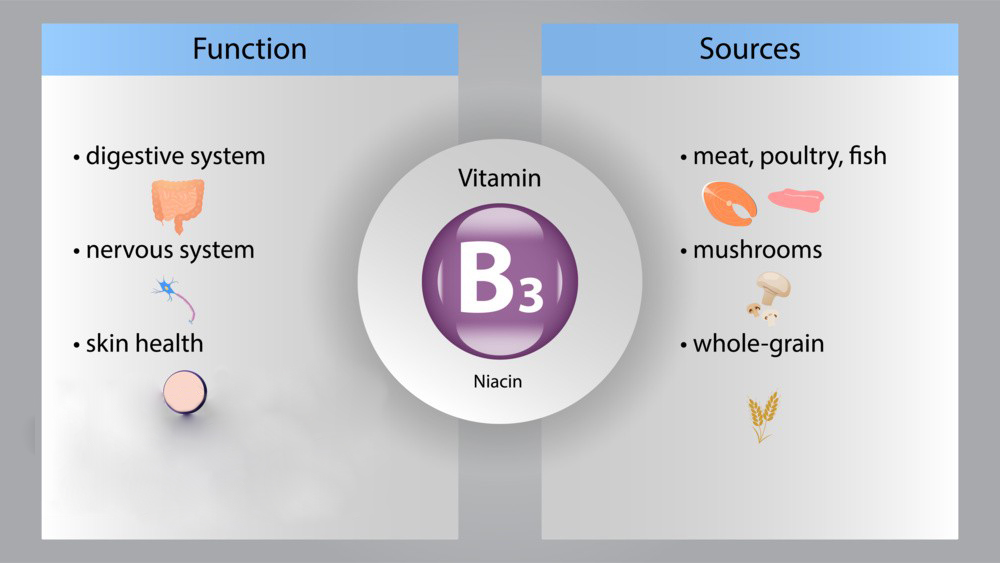Niacin, also known as vitamin B3, is essential for various bodily functions and has several important applications:
1.Treatment of Vitamin B3 Deficiency: Niacin is crucial for the synthesis of nicotinamide adenine dinucleotide (NAD) and nicotinamide adenine dinucleotide phosphate (NADP), which are coenzymes involved in cellular metabolism. Deficiency can lead to symptoms like dermatitis, diarrhea, and dementia.
2.Lowering Cholesterol: Niacin is used in higher doses (often as a supplement) to help lower levels of LDL cholesterol (often referred to as “bad” cholesterol) and triglycerides, while increasing HDL cholesterol (“good” cholesterol). This can help reduce the risk of cardiovascular diseases.
3.Treatment of Hyperlipidemia: Due to its effect on cholesterol levels, niacin is sometimes prescribed to people with hyperlipidemia (high lipid levels in the blood) who do not respond well to other treatments.
4.Management of Atherosclerosis: Niacin can also help slow the progression of atherosclerosis, a condition where arteries become narrowed and hardened due to a buildup of plaque.
5.Adjunct Therapy for Diabetes: Niacin may play a role in improving glycemic control in individuals with type 1 or type 2 diabetes, although more research is needed in this area.

6.Skin Health: Applied topically, niacinamide (a form of niacin) has been shown to improve skin barrier function, reduce inflammation, and help with conditions like acne, rosacea, and hyperpigmentation.
7.Neurological Health: Niacin is important for brain function and has been investigated for its potential role in supporting cognitive function and reducing the risk of neurodegenerative diseases, though more research is needed.
8.Other Uses: Niacin is sometimes used in combination with other medications for treating conditions like osteoarthritis, migraine headaches, and alcohol dependence, although its effectiveness in these areas varies and requires further study.
It’s important to note that while niacin has many potential benefits, high doses can cause side effects such as flushing (warmth, itching, redness of the skin), liver damage, and gastrointestinal upset. Therefore, it should be used under medical supervision, especially in high doses or when treating specific conditions.
The negative impact of the Niacin
Niacin, also known as vitamin B3, is generally considered beneficial for health when taken in appropriate doses. However, there can be negative impacts associated with niacin, particularly when consumed in excess. Here are some potential negative impacts:
1.Flushing: Niacin can cause flushing of the skin, which is a temporary sensation of warmth, itching, or redness, especially in the face and upper body. This effect is more common with higher doses of niacin and can be uncomfortable for some individuals.
2.Digestive Issues: Taking high doses of niacin can lead to digestive upset, including nausea, vomiting, diarrhea, and abdominal pain.
3.Liver Toxicity: Prolonged use of very high doses of niacin (often seen in supplements, not dietary sources) can lead to liver toxicity. This risk is particularly relevant when niacin is taken as a supplement rather than obtained through food sources.
4.Glucose Intolerance: There is some evidence that high doses of niacin can interfere with glucose metabolism, potentially leading to impaired glucose tolerance or exacerbation of diabetes in susceptible individuals.
5.Gout: Niacin can raise uric acid levels in the blood, which may trigger or worsen gout in people who are susceptible to this condition.

6.Skin Issues: In rare cases, high doses of niacin can cause dry, itchy skin or exacerbate existing dermatological conditions.
7.Interactions with Medications: Niacin can interact with certain medications, such as cholesterol-lowering drugs (statins), leading to increased risk of side effects.
To mitigate these potential negative impacts, it’s essential to consume niacin within recommended daily allowances (RDA). For most adults, the RDA for niacin is around 16-18 mg per day, which is easily obtainable through a balanced diet that includes sources like meat, fish, nuts, and whole grains. If considering niacin supplements for specific health reasons, it’s advisable to consult with a healthcare provider to determine appropriate dosages and monitor for any adverse effects, especially if higher doses are necessary.
